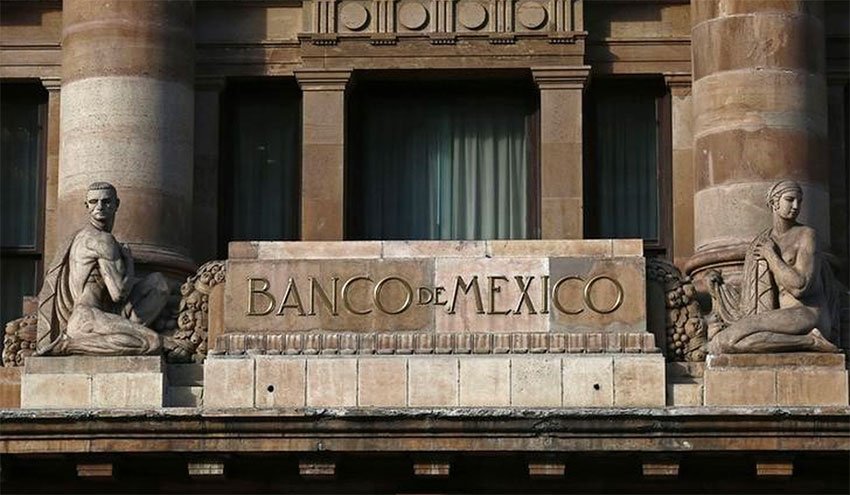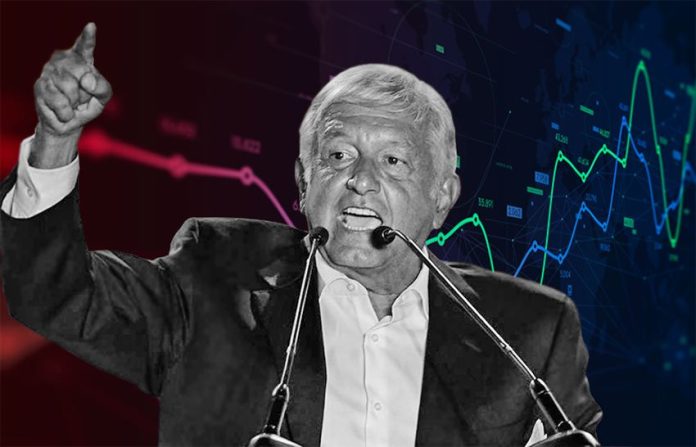On the first anniversary of Andrés Manuel López Obrador’s election as president, many financial analysts believe that the economy is in worse shape than a year ago – but it’s not all bad news for the leftist leader.
The economy is slowing, investment is falling, job creation is down and private consumption is on the wane but on the plus side, the minimum wage is up, salaries have risen more widely, public finances are stable and Congress approved a landmark labor reform package and ratified the new North American trade agreement.
But according to a report published today in the newspaper El Financiero, the public policy decisions taken by the government have had a negative impact on the economy, leading it to its “worst moment since the financial crisis” of 2007-2008.
Marco Oviedo, chief economist in Mexico for the financial services company Barclays, said that López Obrador’s decision to cancel the new Mexico City airport project – made before he was sworn in as president after a controversial public consultation – was particularly damaging to the economy because it raised doubts about the way the political veteran would govern and generated market volatility and investor suspicion.
Now, seven months into the government’s six-year term, the head of Latin America economics at Goldman Sachs believes that there is clear evidence that the economy has declined.

“There is a lot of uncertainty about the direction of macroeconomic policy. There are several factors that have contributed to this, such as the conservatism that the Bank of México has taken with respect to its monetary policies, the credit rating downgrade threatening Pemex and the general employment slowdown. They’re unequivocal signs that the country’s economy has weakened,” Alberto Ramos said.
He acknowledged that there has been an increase in salaries but added “that also has macroeconomic implications as the [pay] rises represent an increase in labor costs for employers.”
If the higher salaries being paid are above productivity gains, they could “lead to less job creation in the medium term,” he said.
In an interview with El Financiero, Fernando López Macari, president of the Mexican Institute of Finance Executives, chose to focus on the positives of the government’s economic management.
He said the commitment shown by López Obrador to financial discipline and the maintenance of a primary surplus are worthy of praise, adding that he should continue that approach for the duration of his presidency.
“The four pillars that will give confidence to investors and analysts that study the country’s public finances are compliance with fiscal discipline, not increasing sovereign debt, not raising company taxes and finally respecting the autonomy of the Bank of México,” López said.
But even as the government complies with those recommendations, the short-term outlook for the economy, especially in terms of growth, looks less than rosy.
The central bank, also called Banxico, said today that private sector economic specialists consulted for its June survey predicted growth of just 1.13% in 2019 compared to 1.32% in the May survey.
“As in May, all of the analysts consulted think that the economy is not better than a year ago,” Banxico said, explaining that they cited concerns about political uncertainty and insecurity.
In contrast, López Obrador asserted yesterday that “the economy is good” and has pledged to deliver average 4% growth during his administration. Despite widespread downgrades of growth expectations, he has also expressed optimism that 2% growth in 2019 remains feasible.
Predictions in Banxico’s June survey for other aspects of the economy make better reading for the government and the people of Mexico.
Analysts predicted that the year will end with an inflation rate of 3.63% compared to a forecast of 3.75% in May, while the peso is expected to finish 2019 trading at 19.85 to the US dollar, up slightly from 19.92.
Source: El Financiero (sp), Milenio (sp)
